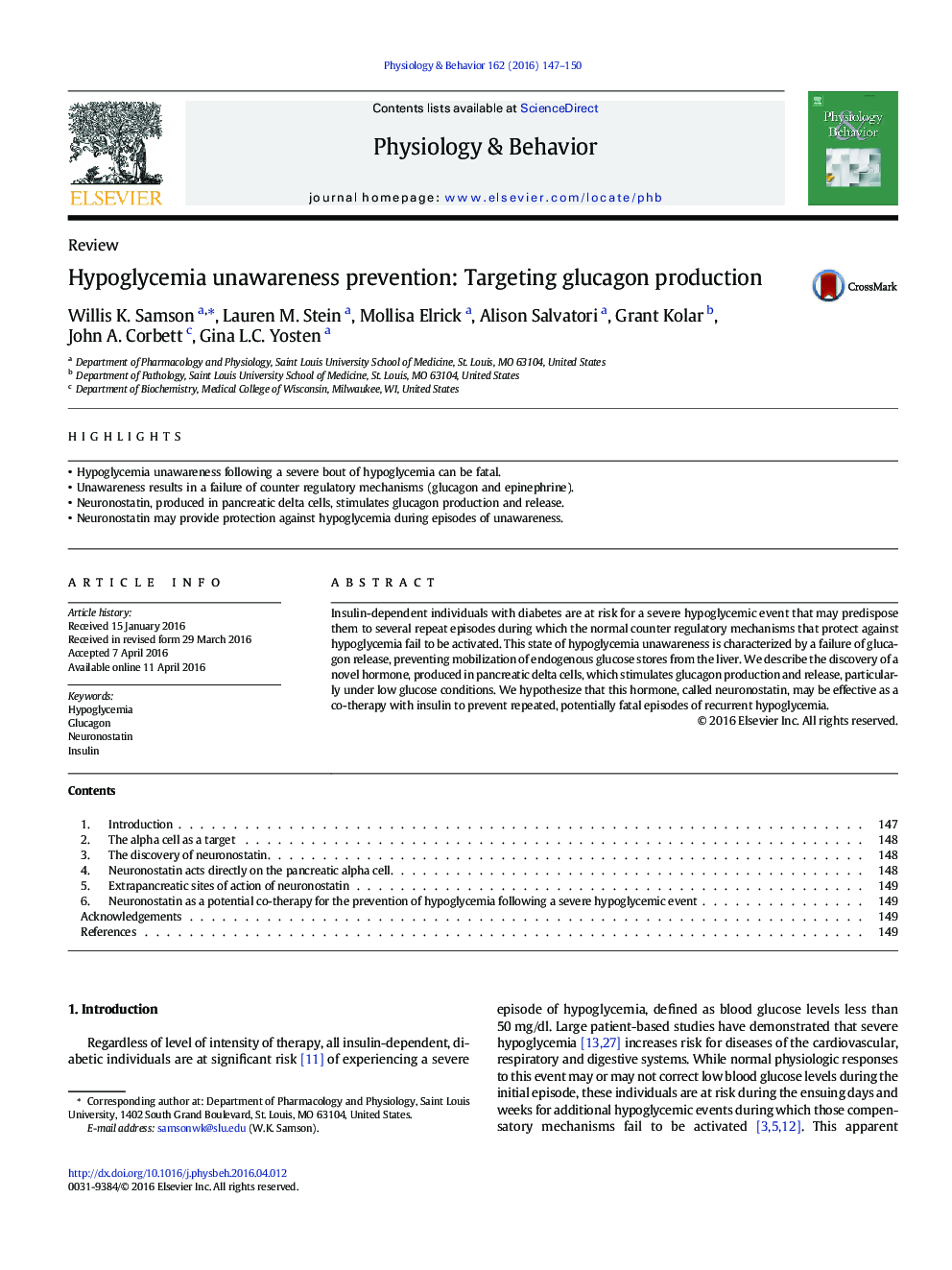| Article ID | Journal | Published Year | Pages | File Type |
|---|---|---|---|---|
| 2843911 | Physiology & Behavior | 2016 | 4 Pages |
•Hypoglycemia unawareness following a severe bout of hypoglycemia can be fatal.•Unawareness results in a failure of counter regulatory mechanisms (glucagon and epinephrine).•Neuronostatin, produced in pancreatic delta cells, stimulates glucagon production and release.•Neuronostatin may provide protection against hypoglycemia during episodes of unawareness.
Insulin-dependent individuals with diabetes are at risk for a severe hypoglycemic event that may predispose them to several repeat episodes during which the normal counter regulatory mechanisms that protect against hypoglycemia fail to be activated. This state of hypoglycemia unawareness is characterized by a failure of glucagon release, preventing mobilization of endogenous glucose stores from the liver. We describe the discovery of a novel hormone, produced in pancreatic delta cells, which stimulates glucagon production and release, particularly under low glucose conditions. We hypothesize that this hormone, called neuronostatin, may be effective as a co-therapy with insulin to prevent repeated, potentially fatal episodes of recurrent hypoglycemia.
